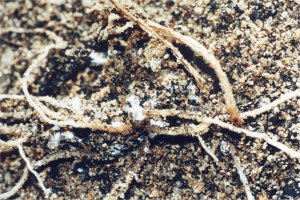The History of Pest ControlThe use of pest control control ranges from home improvement arrangements to
the very precise deployment of compounds and predatory insects by
exceptionally skilled practitioners. Despite the fact that pest control is a global industry it is still dominated by family or 1-person businesses. The ones that need
to control pests vary between householders to
largescale agri-conglomerates who need to maximise their return. Between these two are bars, restaurants, food manufacturing centers and farmers - in fact,
anyone who regularly handles food. Pest control may make us more
comfortable - however may save lives.
The term pest is subjective as one person's pest may possibly be yet another man's
helper. For example, pest A might be a hazard to harvest A, and pest B a threat to
harvest B. However, if insect B is an all pure predator to insect infestation, then a farmer who
wants to protect crop A can nurture and release insect B among his crops.
There is a notion that without man's intervention at the food chain through
farming, hunting and long distance traveling there would be no pests. The
theory remains that person's intervention (for example, in nurturing and
discharging pest , or in carrying animals long distances) has upset the balance
of their foodchain, producing instability in insect and other animal amounts and
distorting their own evolution. This uncertainty has caused overpopulation of a
given
species with the result they have become pests. Having said this, when we assume that the very first fly swat was that the very first example of pest control - and we know that large critters swat flies - it might possibly be contended that pest control dates back way before humans came on the scene.

mole removal Hitchin recorded instance of pest-control takes us straight back to 2500BC once the Sumerians
used sulphur to control insects. Then around 1200BC the Chinese, in their own age of discovery towards the ending of the Shang Dynasty, were using chemicals to
control insects. The Chinese continued to develop ever more complex chemicals and ways of controlling insects for crops and also for individuals comfort.
No doubt that the spread of pest control knowhow was helped by the advanced state of
writing skill. Even though advancement in pest control methods certainly continued, the upcoming significant scrap of evidence does not come until approximately 750BC when Homer clarified the Greek utilization of wood ash spread on land for a kind of
pest control.
Around 500BC that the Chinese were using arsenic and mercury compounds being a way to control body lice, a frequent problem throughout history. In 440BC the Ancient
Egyptian's used fishing nets to pay their beds or their houses at night for a
refuge from mosquitoes
By 300BC
there is certainly evidence of using utilization of predatory insects to control pests, even but this method has been almost certainly developed before this season. The Romans
developed pest control methods and also these ideas were distributed throughout the
empire. In
200BC, Roman censor Cato encouraged the usage of oils as being a way of pest control
and also at 70AD Pliny the Elder wrote that galbanum resin (from the fennel plant)
ought to be inserted to sulphur in order to discourage mosquitoes. In 13BC the earliest recorded rat-proof grain store was built by the Romans.
The very first known instance where predatory pests were transported from 1 area to another comes from Arabia approximately 1000AD where farmers moved cultures of rodents from neighboring mountains into their oasis plantations as a way to prey phytophagous rodents that attacked date hands.
Inspite of the enlightenment provided by the early Chinese, Arabs and Romans,
a lot of these teachings failed to pass down though time. Certainly in Europe
through the dark ages, most methods of insect control were just as prone to become dependent on
superstition and local spiritual rituals as any proven procedure. Pests were often
seen as workers of evil - notably individuals who destroyed food, livestock or plants.
Even though there were undoubtedly studies of fleas during the dark ages, we don't have any listed signs of this.
It is not before European renaissance once more evidence of pest control
emerges. With the aid of Linnaeus and different scholars and also the commercial should ensure livestock and crops were shielded,
pest-control became systemized and disperse throughout the planet. As worldwide commerce increased, fresh pesticides were discovered.
At this point pest control was carried out by farmers and some householders
within an everyday life. By early nineteenth century howeverthis shifted as writings and studies began to show that treated pest control as a
separate area. Pest control direction has been climbed upward to meet those requirements, to the point that dedicated pest controls begun to
emerge through the entire 20thcentury.
In 1921 the first crop-spraying aeroplane was employed and at 1962 flying insect control was revolutionized when Insect-o-cutor started selling fly killer
machines using ultra violet lamps.
Pest control remains carried out by farmers and householders to the day.
There are also pest control specialists (sometimes called pesties); most are one person companies among many others benefit large companies. In most countries
the pest control industry is dogged by a few bad practitioners who have
tarnished the reputation for its highly professional and accountable.
One thing is for certain, away before the Sumerians of 2500BC to people in present times, there have always been - and probably always will be pests (including some individual ones!) . Thank goodness, so, that we have pest controls.
|
Article Directory /
Arts, Business, Computers, Finance, Games, Health, Home, Internet, News, Other, Reference, Shopping, Society, Sports
|